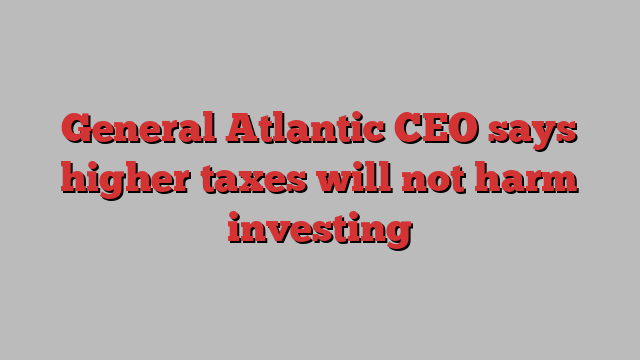
Unlock the Editor’s Digest for free
Roula Khalaf, Editor of the FT, selects her favourite stories in this weekly newsletter.
General Atlantic’s chief executive said higher taxation of capital gains in the United Kingdom would not affect his firm’s approach to investing, and that dealmaking would improve next year regardless of who won the US election.
Bill Ford, who heads the global private equity firm with $83bn in assets under management, added that companies with market capitalisations of more than $10bn would drive the IPO market going forward.
“Investors want more market cap,” Ford said at the Financial Times Due Diligence conference in London, adding that small companies would struggle in the IPO market because “people want liquidity, and it’s very hard to generate sufficient liquidity when you’re a lower cap and you’re a long way from being included in an index”.
He added that the growth of the exchange traded funds market had been “negative for the IPO market” because “ETFs don’t buy IPOs, active investors buy IPOs”.
A drought in listings has persisted into this year in the wake of higher interest rates. Companies have raised about $26bn by going public in New York this year, roughly the amount that was being raised every six months in the years before the 2020-21 boom.
But Ford predicted that upcoming big-ticket listings, such as the expected flotation of Chinese budget fashion retailer Shein, could rouse activity.
“It’s the kind of IPO that could excite investors and . . . reopen an IPO market.”
The slump in listings has been part of a wider dearth of dealmaking that Ford put down to higher rates and t elections taking place in the US and elsewhere in 2024.
But he said next year would be an “active year” once the political uncertainty had subsided and the “rate cycle has turned”. He added that “we’re looking at a soft-landing scenario”.
He said the prediction was not contingent on who won the US election, although “everybody is hoping for a change in the antitrust environment. I know in the US, probably more broadly, that will allow strategic buyers to be more active . . . but I think it’s irrespective of who wins the election.”
Turning his attention to the taxation of carried interest — the share of profits that private equity investors get to keep on successful deals — Ford said he did not know that changes in the UK would “dramatically change what we do or our style of investing”.
Debates around the taxation of carried interest have long percolated through elections on both sides of the Atlantic.
The UK chancellor, Rachel Reeves, had put the industry on notice of her plans to close a “loophole” that has long allowed the windfalls to be taxed as capital gain. However, the FT recently reported that she was looking for a compromise after several warnings that boosting the rate could trigger an exodus of buyout executives.
“In the US the debate is, will it be the equivalent to ordinary income and what will that rate be? You know, everybody in the world would like lower taxes or higher taxes [depending on one’s political affiliation], but I don’t think it would change what we do,” said Ford.
“We’ve got to generate investment excellence for our clients to stay in business, we’ve got to produce the results they expect of us,” he added. “That more than taxes or anything else is what motivates us.”